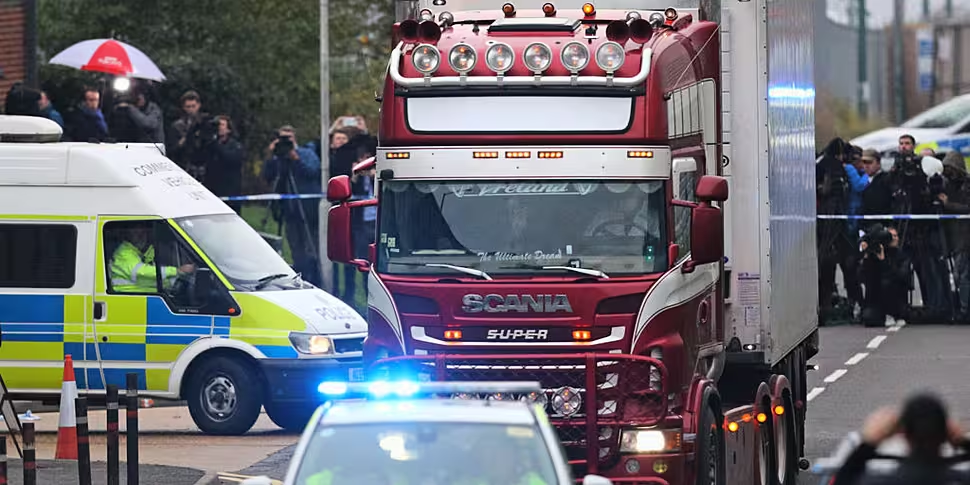Police investigating the discovery of 39 bodies in a lorry container in Essex have searched two addresses in Northern Ireland.
The driver, a 25-year-old man from County Armagh, is still being questioned after being arrested on suspicion of murder.
Police said the trailer arrived in the UK by ferry from Belgium yesterday morning.
The tractor section arrived in Britain from Northern Ireland before picking up the trailer and transporting it to Essex.
Refugee campaigners have warned that Europe’s migration system is forcing asylum seekers into making increasingly dangerous journeys.
***
The Dáil Procedures Committee will this morning examine a report on alleged absentee voting in the Dáil.
The Ceann Comhairle opened an investigation after it emerged Fianna Fáil TD Niall Collins voted on behalf of his colleague Timmy Dooley while he was not in the Dáil chamber.
Fianna Fáil has also submitted video footage it claims shows Fine Gael ministers voting on behalf of absent colleagues.
The report is expected to be published today and will be debated in the Dáil this afternoon.
***
Ireland is "falling short" in its efforts to lower greenhouse gas emissions, the Environmental Protection Agency (EPA) has warned.
The agency's provisional figures for 2018 show Ireland exceeded its annual EU emissions budget by over 5 million tonnes.
It contrasts with an excess of 3 million tonnes in 2017.
There was an overall a marginal decrease of 0.2% in greenhouse gas emissions, largely due to a reduction in the energy sector.
***
Inspectors will examine Irish Water’s Leixlip treatment plant today after a fault cut off the supply of clean water to 600,000 people.
A boil water notice remains in place for parts of Dublin, Kildare and Meath.
The notice took effect on Tuesday evening and Irish Water is hopeful it can be lifted by the Bank Holiday weekend.
The HSE is warning that the untreated water may contain parasites that cause diarrhoea and stomach cramps.
Anyone who develops symptoms is urged to contact their GP.
***
It has taken an ambulance at least an hour to arrive at a life-threatening emergency more than 120 times this year.
On one occasion, it was nearly four hours before a patient was attended to.
According to guidelines from the Health Information and Quality Authority (HIQA), an ambulance should arrive at life-threatening emergencies in less than 19 minutes in 80% of cases.
However new figures - released to Newstalk under the Freedom of Information Act - show this target isn't being met in many areas in the country.









